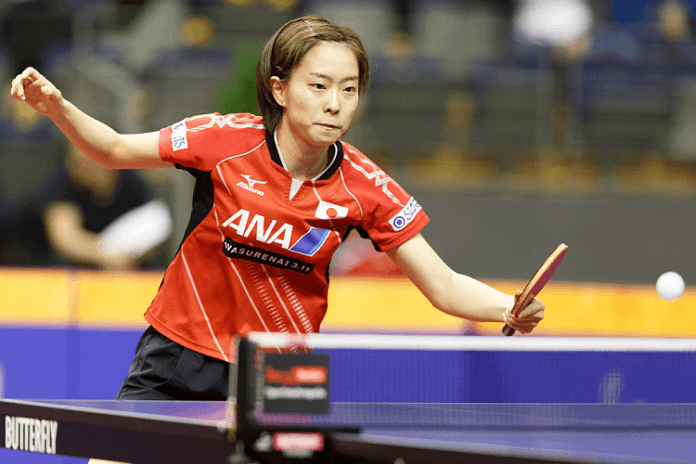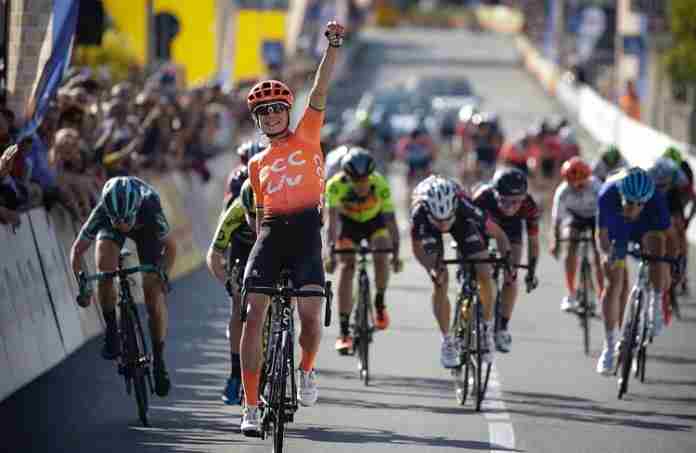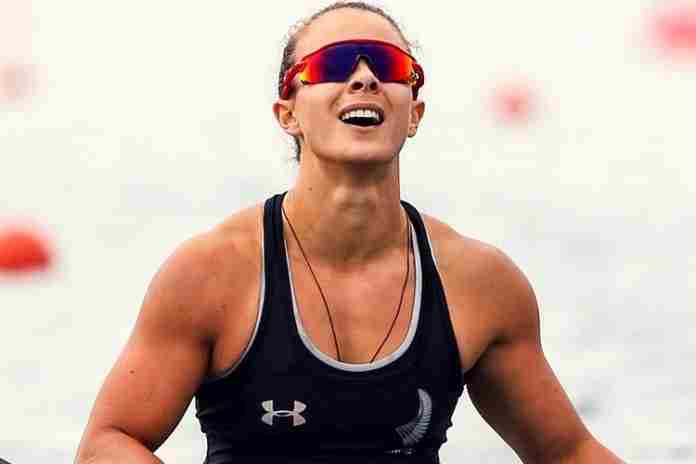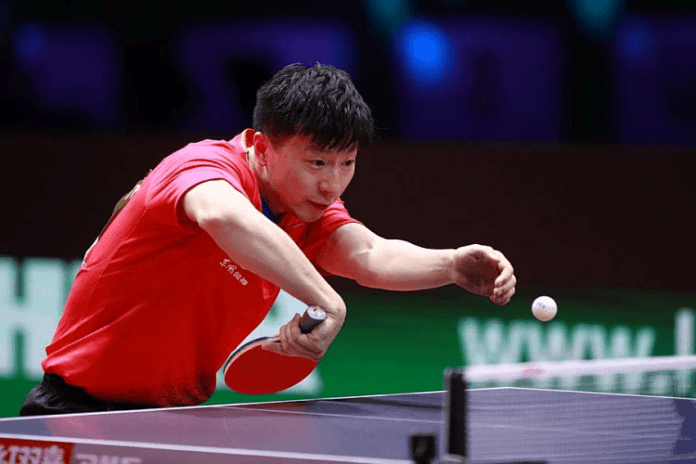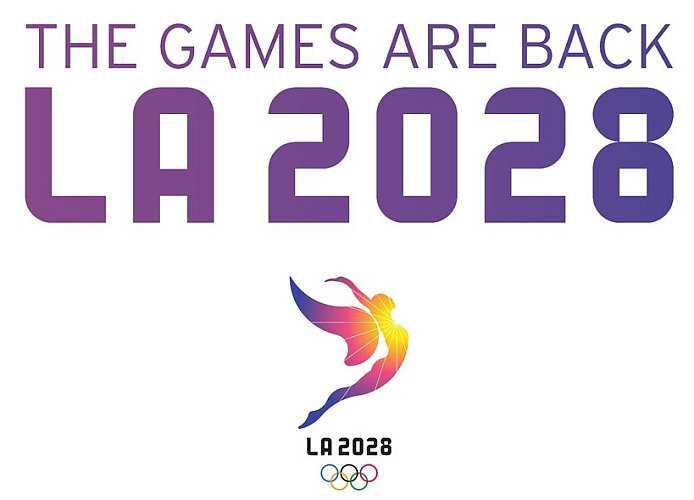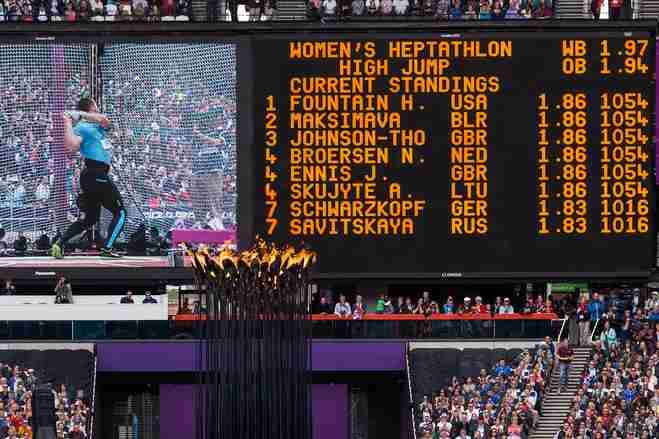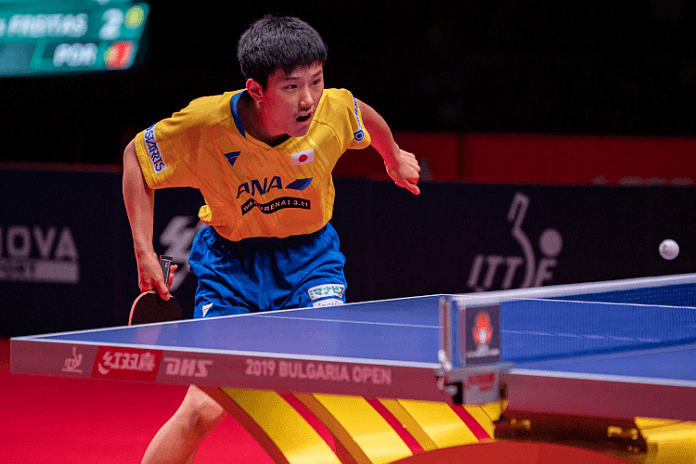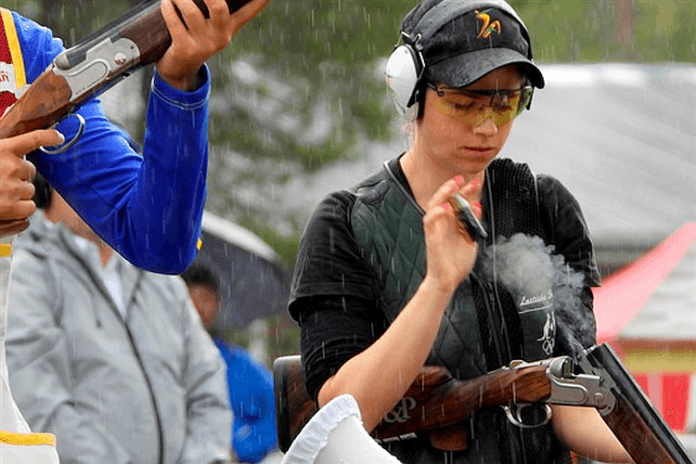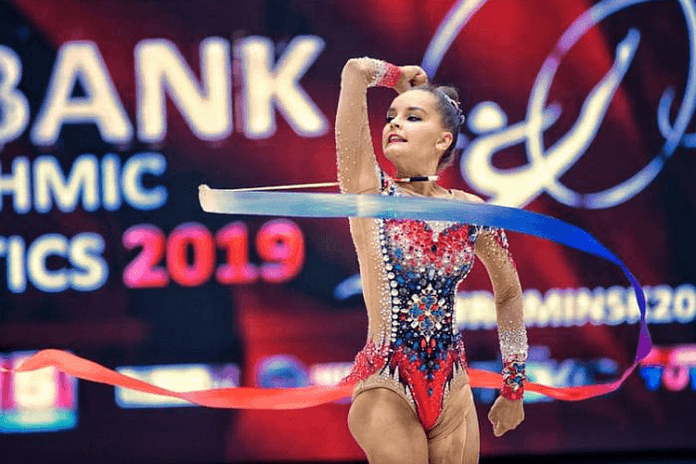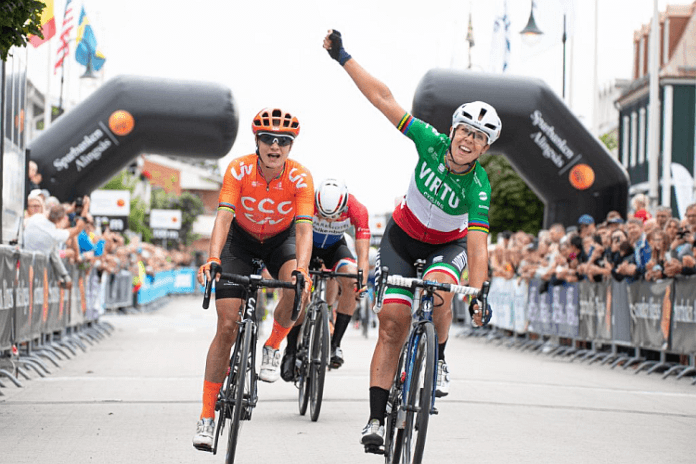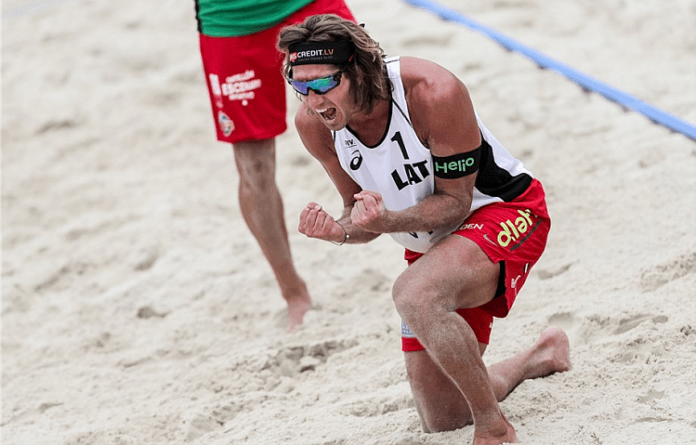= TSX DAILY ~ 19 August 2019 =
| 1. | LANE ONE: U.S. survey says most kids quit sports by age 11, but is there really a problem?
A scary headline on the Web site of Channel 41 KSHB in Kansas City announced “Study shows more young athletes calling it quits, U.S. Olympic Committee concerned.”
The story came courtesy of The Aspen Institute, which was trumpeting its own research survey showing that youngsters are entering and exiting organized sports after an average of 2.86 years, starting as early as age six and leaving by age 13.
This was a survey, not a full-blown study and was interesting, showing the average entry age and exit age for nearly two dozen sports. The sports taken up the earliest included gymnastics (average entry age 5.75), soccer (6.11) and football (flag: 6.35); the oldest entry ages were for cross country and track & field (age 11).
The research showed kids leaving after an average of three years, with the oldest departures at age 13 for cross country and track. This is obviously a critical issue and a clear path to adult obesity as kids leave the playgrounds for the nearest gaming computer.
So The Aspen Institute is partnering with ESPN on a series of public service announcements called “Don’t Retire, Kid” and featuring Kobe Bryant and other major-sports stars to stem this epidemic.
The series is no doubt well produced and sincere. But let’s go deeper into the numbers. There’s another survey, wholly unconnected with The Aspen Institute, which has been going on for more than a half-century, tracking participation in interscholastic athletics at the high school level. Contrary to The Aspen Institute’s downward spiral, the number of prep athletes continues to increase.
Over the last 20 years, an additional 1.5 million boys and girls are playing high school sports. Over the last 10 years, with the increase in girls sports more widely implemented, the increase has been more than 550,000 nationwide. Future U.S. Olympians will come from this expanding pool.
The Aspen Institute research also does not reference the impact of the presence or elimination of physical education programs in middle schools on the children playing, and coupled with the continuing increase in high school athletes, raises more questions rather than providing a definitive answer.
One element which was worth noting was the study’s brief mention of the increased difficulty for youth of modest means to access youth sports programs. That is an element of today’s youth sports program which can be worked on, and brings a new urgency to turn Los Angeles Mayor Eric Garcetti’s call for a $1 billion surplus from the 2028 Olympic Games to expand and fund City youth sports programs into perpetuity from an idea into a rallying cry.
| 2. | ARCHERY: Ellison and Kaufhold take U.S. Nationals, start path to Tokyo
The long road to Tokyo began for American archers in Dublin, Ohio with the 135th U.S. National Target Archery Championships, and the front-runners for the U.S. team became obvious.
Reigning World Champion Brady Ellison won the double ranking-round competition – in windy conditions – shooting 1,351, ahead of two teenagers: 16-year-old Josef Scarboro (1,330) and 19-year-old Jack Williams (1,325). This is the first of four stages in the Olympic qualifying process for U.S. archery; the next comes at College Station, Texas in late September.
Shooting star – pun intended – Casey Kaufhold (pictured), still just 15, won the women’s double ranking round at 1,314, defeating Eliana Claps (1,297) and Crystal Gauvin (1,276).
In the U.S. Open elimination tournament that followed, Ellison won again, out-shooting his 2016 Olympic teammate Zach Garrett in the final, 6-2. Kaufhold lost to 45-year-old Khatuna Lorig – remember her from the Bridgestone Tires commercials? – in the Open final, 7-3. That’s the second time Lorig beat Kaufhold in a couple of weeks; she did it in Lima at the Pan American Games in the way to a silver medal, while Kaufhold took the bronze.
There were also national titles awarded in Compound and Barebow, which are not Olympic disciplines. More coverage here.
| 3. | ATHLETICS: Miller-Uibo, Wilson and Williams make strong statements in Birmingham Diamond League
Although there was a good crowd on hand at the Alexander Stadium in Birmingham (GBR) for the IAAF Diamond League meet on Sunday, the athletes were also met with cool temperatures in the 60s (F) and lots of wind. So the times were down, but the competition was hot. Three stars made it clear they are the favorites for the upcoming Worlds in Doha in late September:
(1) Shaunae Miller-Uibo of The Bahamas got a slow start, then blew past everyone – including British star Dina Asher-Smith and Jamaica’s Shelly-Ann Fraser-Pryce – to win the 200 m going away in 22.24 (to 22.36-22.50). Miller-Uibo is now undefeated for two years at the distance and she is the world leader this season at 200 m, 300 m and 400 m.
(2) American Ajee Wilson knew what to do and then did it expertly in winning the women’s 800 m, facing many of the same runners who will challenge her in Doha. The winning time was only 2:00.76 – with difficult winds on the backstraight – but as Wilson noted “We don’t focus on times, it’s all about the win, that’s first on the list.” She ran away from Lynsey Sharp (GBR: 2:01.09) and training partner Raevyn Rogers (2:01.40) as Jamaica’s Natoya Goule faded to sixth.
(3) Jamaica’s Danielle Williams was easily the best in the women’s 100 m hurdles in 12.46, dispensing a good field that included world-record holder Keni Harrison (USA: 2nd/12.66) and Olympic champ Brianna McNeal (USA: 6th/12.90).
There were other highlights, notably 4:21.11 mile win for Germany’s Konstanze Klosterhalfen and a 4.75 m (15-7) clearance in a windy pole vault event for Greek Olympic and World Champion Katerina Stefanidi, with American Jenn Suhr third at 4.65 m (15-3). More coverage here.
| 4. | BASKETBALL: U.S. World Cup team eases past Spain, 90-81, to tamp down media hysteria
There were loads of stories online about how bad the U.S. men’s national team headed for the FIBA World Cup is, with so many of the top NBA stars passing on the event and reports of the team being out-classed in two scrimmages against a G-League pick-up team.
So Friday’s exhibition game in Anaheim against no. 2-0-ranked Spain, with NBA veterans like Marc Gasol and Ricky Rubio was widely seen as a real test.
The U.S. passed with flying colors, winning 90-81 in a game that was not as close as the score indicated. The American squad took off, from a 10-10 tie to a 31-20 lead at the end of the first quarter and a 54-41 halftime lead. Spain challenged in the fourth quarter, cutting the lead to eight, but a U.S. flurry built the lead back up to 88-72 in the last two minutes.
The U.S. shot 54.8% from the field and held the Spanish to 40.8% shooting and out-rebounded Spain, 42-20. But 23 turnovers were a problem for the U.S., especially vs. 11 for Spain.
Donovan Mitchell led the U.S. with 13 points, Khris Middleton had 12 and Kemba Walker and Jayson Tatum had 11; Spain got 19 points from Gasol and Rubio had 16.
More details here. The U.S. team is now in Australia and will play three more exhibitions (next on 22 August vs. Australia in Melbourne) before heading to China for the World Cup itself.
| 5. | SPORT CLIMBING: Garnbret wins two, cements favorite’s role for Tokyo at World Champs
The most important IFSC World Championships in history continues in Hachioji, Japan as the sport prepares for its Olympic debut in 2020. The first week showcased the favorite for the women’s Olympic title, Janja Garnbret of Slovenia.
She immediately won the Bouldering competition, extending her perfect six-for-six World Cup season. Then she overpowered everyone in the Lead event, where she won her second World Championship gold in the event, well ahead of runner-up Mia Krampl of Austria.
She was not a factor in the Speed event, won for the second consecutive year by Poland’s Aleksandra Miroslaw, who posted the fastest time of the day in the final to defeat China’s Di Niu.
The men’s Lead event was won by Czech Adam Ondra for the third time in the last four Worlds; he now has medals in the last seven World Championships in the event. Defending champ Jakob Schubert (AUT) finished third.
Italy’s Ludovico Fossali won the men’s Speed contest in a comical series of events. After qualifying into the quarterfinals, his next two opponents both false-started, advancing him to the final. Once there, Czech Jan Kriz fell and Fossali scampered up the 15 m wall and claimed his first world title all alone!
More coverage here; the Combined events – the one to be held in Tokyo in 2020 – continue this week.
| 6. | SWIMMING: Like old times, Morozov and Hosszu win cluster prizes as Rapsys gets 200 m Free world leader
Swimming fans have been this picture before, in fact, as recently as last year, when Russian Vladimir Morozov and Hungary’s Katinka Hosszu won the second cluster and collected a $50,000 bonus.
So it was in Singapore, where Morozov was protecting a 96-87 lead over American breaststroke star Andrew Wilson. Morozov won three events – the 50-100 m Frees and the 50 m Back – and had the top-scoring individual performance of the meet to score the maximum 60 points and win decisively, 156-129, with Lithuania’s Danas Rapsys third (111).
Rapsys had the race of the meet – regardless of the scoring tables – with his brilliant 1:44.38 win in the 200 m Freestyle, the fastest in the world in 2019. In fact, it moved him to no. 6 on the all-time performers list, and it’s especially noteworthy as it’s the no. 4 performance ever in a textile suit!
The women’s cluster scoring showed Australia’s sprint star Cate Campbell leading Hosszu, 105-102 going into the meet. But Hosszu (pictured) won three events and had the no. 2 performance of the meet on the scoring tables for 54 points and Campbell finished first and second in two of her events and skipped a third. Even with the best single performance of the meet – her 24.02 win in the 50 m Free – she finished with 150 points to 156 for the Hungarian.
However, Campbell, Wilson and others didn’t simply get a handshake and a copy of the home game; cluster prizes were $50,000-35,000-30,000-20,000-10,000-5,000-4,000-3,000 for the top eight scorers.
More coverage of day 2 and day 3 is available; the World Cup is off now until October.
| 7. | WEIGHTLIFTING: Bad week for Russian lifters as 13 are suspended in five days!
The International Weightlifting Federation may have been re-admitted to the Olympic program with full status by the International Olympic Committee, but it is well aware that could change at any time.
So it has been one of the first to distribute suspensions to Russian lifters based on the new evidence distributed to the International Federations by the World Anti-Doping Agency, based on the information retrieved from the Moscow Laboratory of the Russian Anti-Doping Agency when it ran its infamous doping cover-up program from 2011-15.
The IWF announced five suspensions on Monday (12th), but then added seven more on Friday (16th), including penalties for two lifters who won Olympic medals in 2008, but had already been disqualified for doping back then!
● Dmitriy Lapikov: 2008 Olympic bronze medalist at 105 kg (DQ in 2016)
● Nadezhda Evstyukhina: 2008 Olympic bronze medalist at 75 kg (DQ in 2016)
In addition, the Russian weightlifting federation itself posted an eight-year ban on 2017 European 90 kg winner and 2019 87 kg silver medalist Diana Mstiyeva, caught in an out-of-competition test in May (and previously caught for doping in 2014). That’s 13 suspensions in one week!
| 8. | FOOTBALL: Spectre of match-fixing descends on Nigerian coach Samson Siasia
FIFA issued a lifetime ban on Friday of Nigerian Olympic soccer team coach Samson Siasia for match-fixing and fined him CHF 50,000 for agreeing “to receive bribes in relation to the manipulation of matches.”
Siasia was the coach for Nigeria’s silver-medal-winning Olympic men’s team in 2008 and the 2016 team that won bronze. The sanction was the latest outcome of a continuing investigation into the efforts of Singaporean match-fixer Wilson Perumal.
| 9. | THIS WEEK: Four Worlds ahead, the Diamond League in Paris and the final Grand Tour for 2019
Get set for a busy week of action this coming week, with the start of four world championships:
● Badminton, in Basel (SUI),starting Monday
● Canoe-Kayak Sprints, in Szeged (HUN), starting Wednesday
● Judo, in Tokyo (JPN), starting next Sunday
● Rowing, in Linz-Ottsnehim (AUT), starting next Sunday
The last IAAF Diamond League meet before the two “finals” events will be held on Saturday with the annual Meeting de Paris. And cycling fans will be wearing their red jerseys for the start of the annual La Vuelta a Espana, beginning next Saturday and continuing through 15 September.
| 10. | THE LAST WORD: If you think the USOPC is bad, you haven’t seen this …
The United States Olympic and Paralympic Committee has come in for lots of criticism, along with the U.S. National Governing Bodies for a myriad of issues, starting with the sexual-abuse scandals in multiple sports. But at least they aren’t like Kenya.
Last Wednesday, Kenyan track & field and volleyball teams in Rabat (MAR) to compete in the African Games were thrown out of their hotel rooms over unpaid bills.
CapitalFM reported “The athletes were thrown out of their rooms with their luggage and prevented from leaving the hotel until their bills were paid, with World [javelin] Champion Julius Yego posting the sorry photos on social media.
“‘At around 5pm when we came back from training, we were told to leave our rooms with our luggage. They refused to let us leave the hotel until their dues were paid. It is such a shame for us sports people to be treated this way,” Yego told Capital Sports.”
The situation was eventually resolved that night and the athletes returned to their rooms. The story concluded:
“This is the latest in the case of a government that treats its sports people with a lot of lack of respect, coming hot on the heels of the national basketball team literally begging for help for their allowances to be paid at the FIBA Afrobasket in Dakar, Senegal.
“Just last month, the volleyball team faced similar tribulations of feeling like a forgotten lot at the African Championship in Egypt while the men’s and women’s hockey teams had to travel at the 11th hour for their Olympic qualifiers in South Africa after the government delayed in releasing cash for tickets.”
Say what you will about the USOPC or the NGBs; we












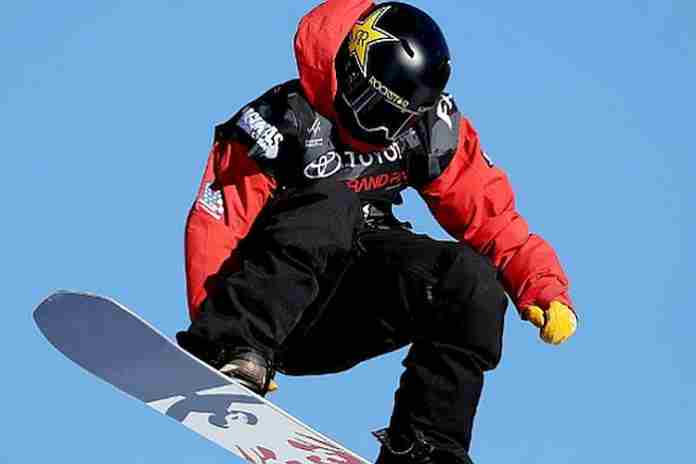
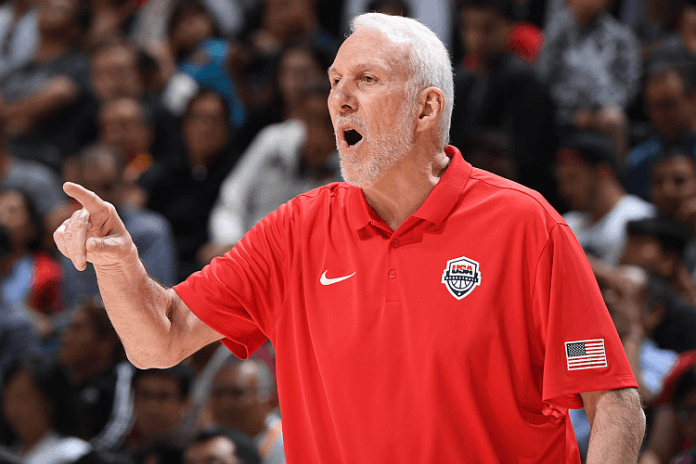
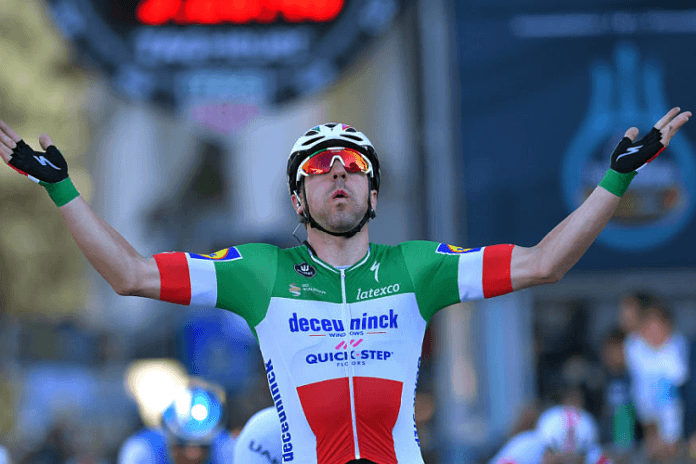
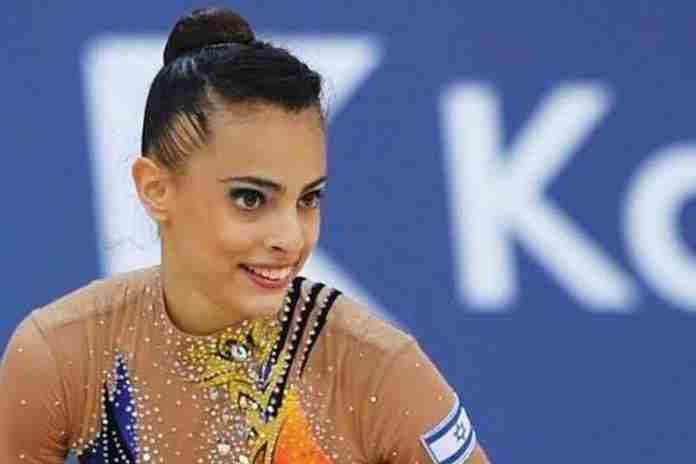
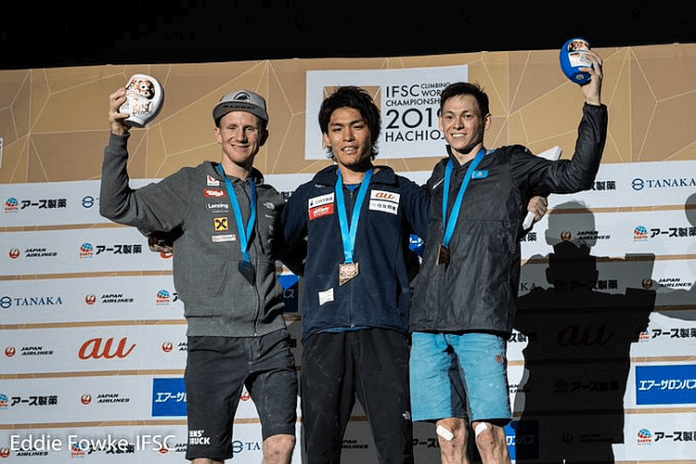
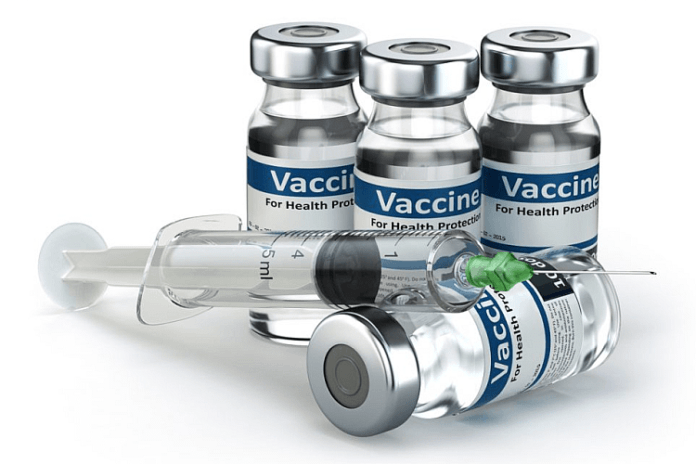
 Over the last 150 years, medical science has created solutions for many diseases which have plagued people for centuries. We often take these miracles of research for granted, but most Americans receive vaccinations against all kinds of threats almost from the day we were born.
Over the last 150 years, medical science has created solutions for many diseases which have plagued people for centuries. We often take these miracles of research for granted, but most Americans receive vaccinations against all kinds of threats almost from the day we were born.